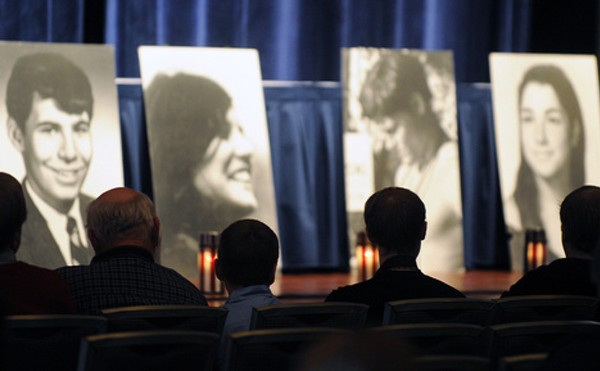Last Thursday, state lawmakers were eager to return to their families and get their citizen lives back. A spectacularly unproductive 59 days on a runaway train derailed by House and Senate redistricting maps ruled unconstitutional by the Kentucky Supreme Court had been a bumpy ride. “This is a long legislative session for us, and people are tired; they’re fatigued,” said Senate President David Williams, R-16, on KET’s April 9 “Kentucky Tonight.”
Both chambers had passed a state budget after marathon, predominantly public negotiations among House and Senate conferees. “You didn’t see one article in The Courier-Journal or the Herald-Leader praising us for having it completely open,” Williams said. “You didn’t have anything about us getting a budget on time. They work every day to … disparage the General Assembly.”
All indications were that legislators would finish their business, go home and not have to return for a $60,000-per-day special session — and perhaps even be praised for doing their jobs lawfully and publicly.
One controversial obstacle that remained was House Bill 267, the state’s two-year road plan, which includes $100 million in funding for the Ohio River Bridges Project. The Senate approved it, without discussion, 37-0. In the House, however, it sparked the last great debate of the regular session.
Rep. Jim Wayne, D-35, said a vote for it implies an endorsement of that project’s financial plan, which includes tolling the I-64 bridge starting in 2031. “So the I-64 bridge will be tolled, the I-65 bridges will be tolled, and the new East End bridge will be tolled. That leaves the 90-year-old George Rogers Clark downtown bridge the only bridge that will not be tolled 13 years into this project.”
Referring to officials’ failure during committee hearings to disclose the plan to toll the I-64 crossing, Wayne added, “This was either an intended or unintended deception on the part of the Transportation Cabinet or the Bridges Authority or both — I don’t know. But it is confusing when you talk about the largest capital project in our state’s history. We don’t get a full report. That is not open democracy.”
It remains unclear how or when the Transportation Cabinet or the Bridges Authority (or both) intend to replace the Clark Memorial Bridge. If such a conversation has taken place, the public wasn’t invited to participate.
House Minority Leader Jeff Hoover, R-83, had other concerns about the suspicious course of Senate Bill 267. When the House and Senate couldn’t reconcile separate versions of the bill, leaders appointed a conference committee to settle differences. But such a committee is constrained by provisions already introduced by either chamber.
“We’ve got new projects in this road plan that were not part of the original House plan and were not part of the original Senate plan,” Hoover said, adding that the compromise bill “is the result of zero meetings of the conference committee,” but reportedly of closed meetings among legislative leaders including Williams, House Speaker Greg Stumbo, D-95, and one or two others.
Hoover agreed with Wayne that, “The way we conduct our business is important.”
House Speaker Pro Tem Larry Clark, D-46, dismissed the tolling issue as long-settled public policy. “We adopted that policy four, five years ago … that any project in the commonwealth of Kentucky that has over $500 million, there would be tolls attached so it doesn’t eat up all the money in one particular area,” he said.
Rep. Stan Lee, R-45, a Lexington attorney, said, “I’m concerned with the process. I’m concerned that we’re about to pass legally defective legislation that would jeopardize our road plan and force us to come back anyway.” He cautioned members to prepare answers to constituents for when “the inevitable lawsuit comes” because “we’re giving a pretty easy one to a pretty fair lawyer out there.”
Nevertheless, the House approved Senate Bill 267 on a vote of 77 to 16 about five hours before midnight, when the General Assembly adjourned without finishing its business. In what one lawmaker described as a game of chicken, the Senate deferred action on the Transportation Cabinet operations budget while waiting for Gov. Steve Beshear to sign the massive road plan, which he refused to do before reviewing it.
Thus triggered another special session and another volley of venom between Beshear and Williams.





